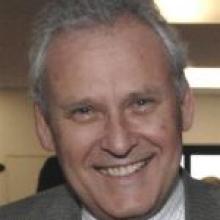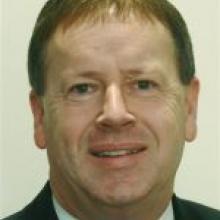
Those voicing support included award-winning scientist Prof Sir Paul Callaghan, who has bowel cancer, and Dunedin oncologist Associate Prof David Perez.
However, the New Zealand Medical Association said it had serious misgivings.
Chairman Dr Peter Foley said he was concerned it was a "piecemeal approach" to health care.
Advised the kits would be issued only after a discussion with trained pharmacists on the appropriateness of that, and that the customer had to include their GP's details so he or she could be advised of the result, Dr Foley said the appropriate place for such a discussion was in general practice.

Prof Callaghan felt the kits were a "fantastic idea" and that Beat Bowel Cancer, on its website, had provided clear information to help people decide if it was for them.
He praised the awareness-raising work being done by the organisation, saying if he had been educated properly 10 years ago, he would not be in the dangerous situation of having cancer that had spread and was now considered terminal.
His condition was discovered in 2008, when he was 61 and had to undergo an emergency operation for a bowel blockage.
Even though he was "reasonably well educated", he did not know the "simple facts" about bowel cancer.
While the testing-kits move might be controversial to some, he felt progressive doctors would welcome their patients becoming more proactive about their own health care.
When the disease was found early, it could be treated very effectively, he said.
Prof Perez said some doctors held the attitude that until a national population-based screening programme was implemented, which could be eight to 10 years away, they would not recommend faecal occult blood tests to their patients.
Some people who had concerns about bowel cancer could find it difficult to approach their doctor in that instance.
Prof Perez said the Mole Map service was an area where patient-initiated screening occurred and results went back to GPs for action, and that service did not generate adverse comment or problems.
A national bowel-cancer screening programme was the ideal, but the kits provided an interim measure that some people could use.
They could generate more demand for colonoscopies. In Otago there was a particular problem about the availability of colonoscopies, but that was something people would need to discuss with their GP if the test was positive.
People in the "internet generation" were much more aware of what was available and people were more proactive about their own health care, something that was a "good direction".
Ministry of Health national cancer programme clinical director Dr John Childs said it was important people understood the initiative was not an organised national screening programme, or the forthcoming pilot scheme, and it was not free.
"As such, it is unlikely to improve outcomes for those most adversely affected by bowel cancer, which include Maori and Pacific peoples, and those from low socio-economic groups."
There was also concern that people could be falsely reassured or worried unnecessarily.
Prof Perez said all screening tests generated some anxiety.
Beat Bowel Cancer chairwoman Dr Sarah Derrett said a meeting with Ministry of Health officials yesterday had been positive and she hoped it would lead to the two organisations working together to raise awareness of the disease.

